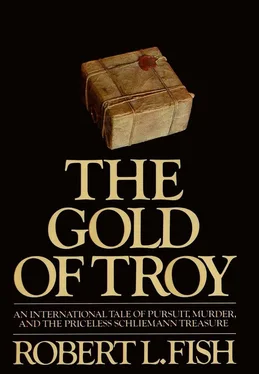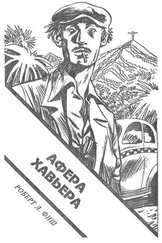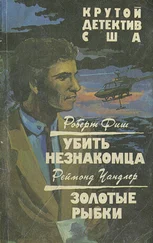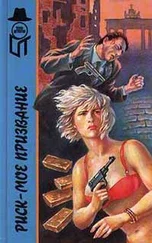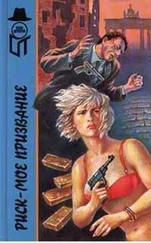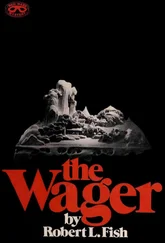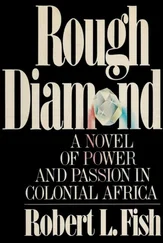“Auction? What auction?” Kovpak looked at Pomerenko. The museum director shrugged.
“The collection is being offered for auction, Gregor.”
“What! When did all this take place?”
“In the last two or three weeks. It’s been widely reported.”
“And who’s offering it?” He turned to the major in apology. “I’ve been busy with a special project of mine. In fact, I just got back from Uzhgorod on the Czech border a day or so ago. Some bones we found may make us change many of our concepts regarding the life forms of the Mesozoic—” He realized he was straying. “What I’m trying to say is I’m afraid I haven’t been paying much attention to the journals lately.” He glanced at Pomerenko. “Who’s had the collection all this time?”
It was Major Ulanov who answered. “No one knows. In your opinion, Doctor, who do you think has had it?”
Kovpak grinned. “I haven’t the faintest. But I can tell you that all my colleagues in the field are convinced that we have it, here at the Hermitage. Either under the sink in my laboratory, or in the desk drawer of my office. And since denial of this idiocy seems pointless, I’ve let them think what they want.” His smile faded as the importance of the major’s question came to him. “Why? Doesn’t anyone know who is offering it?”
“No,” the major said quietly. “It’s a blind auction. So far,” he added grimly.
Kovpak frowned. “But you must have some ideas—”
Ulanov shrugged and leaned over to brush ash from his cigarette. “In our opinion, Doctor, the treasure has been in the hands of the American intelligence ever since the end of the war.”
“Based on what evidence, Major?”
“Someday I’ll tell you. But for now, it’s what we believe. However, I, personally, think it is no longer in their hands. I think someone was clever enough to steal it from them, as they stole it from us. And we are extremely interested in learning how it was done. We think you can be of help to us in this regard.”
Kovpak’s eyebrows went up. “Me? How?”
“First of all, because of your knowledge in the field. We would like you to read all the news regarding the auction in the journals, speak with friends in other museums, get what information you can. Secondly, there is a meeting to be held in London in a week or so, of directors and curators of many museums around the world. The meeting is to discuss this most unusual auction. Your presence there would not be at all unusual. We would like you to attend.”
“I’d be very willing, except I’m in the middle of a project—”
“Gregor!” Pomerenko said threateningly.
Kovpak sighed. “All right,” he said at last, sadly. At least it would make a zoological professor happy, as well as the director of the museum where he did, after all, work. And London was a very charming city. “But I’m not—” He paused.
Ulanov smiled, a surprisingly friendly smile from one of such stern features. “An intelligence agent? Well, I am. And I’ll be with you.” He crushed out his cigarette and came to his feet. “Gentlemen, thank you...”
Berlin — April
“The Schliemann treasurer?” Captain Sudikoff said. “No, I’m quite sure I never heard of it.” He smiled at the elderly sergeant. He was fond of his quartermaster, even if the old boy’s head was up in the clouds half the time. “Should I have?”
Sergeant Kolenko also smiled. He took a deep breath, bringing himself back from the euphoria the amazing discovery had brought to him. He was aware of the captain’s background and had a profound respect for the younger man despite the other’s lack of university education.
“No, I suppose not,” he said.
“And exactly what about this treasure of yours? “What is it?”
“One of the most valuable collections in the world,” the sergeant said, his voice unconsciously taking the tone of a professor at his lectern.
The captain slid from his hammock and took a seat on the corner of a bench that had been added to his quarters; the sergeant also sat down. The captain was pleased with the interruption. As sleep had avoided him, it had been replaced by a feeling of frustration at the many problems peace would bring to the occupying forces, and particularly to their officers. War, whatever its other faults, was relatively simple, the end clearly understood. Still, while war was also horrifying, the discussions he and his quartermaster had often had on many odd subjects had tended to lessen that horror. The captain had no notion of what Sergeant Kolenko had in mind with all this talk of a treasure of some sort, but the conversation, at least, had the advantage of postponing thoughts of peace and the problems that came with it.
“Yes?” the captain said in his most encouraging tone.
The sergeant paused to pack a battered pipe with tobacco. He waited until it was burning to his satisfaction, then he crossed his legs comfortably and began.
“The Schliemann treasure,” he said, “is supposedly the treasure accumulated by Priam, King of ancient Troy at the time of the war with the Greeks. Homer—” He paused. “You know who Homer was?”
“We’re not totally ignorant in the provinces,” the captain said dryly, and smiled. “I know who Homer was.”
“Good,” the sergeant said, not at all abashed by the captain’s response, and once again was the professor. “However, what you may or may not know, was that Homer apparently lived — I say apparently, because there is no definite proof of exactly when he did live — in the eighth century before the modern era, that is, before the birth of Christ. Scholars base this fact on references to Homer and his writings in the seventh century B.C. — Archilochus credits Homer with authorship of the Margites at that time — and the fact that the Greek alphabet is considered to have been invented about the ninth century B.C. The oldest inscriptions found to date written in the Greek alphabet are those that were found on the island of Thera in 1896, and these are thought to date from the eighth, or at most the ninth century before Christ. Since Homer wrote in the Greek alphabet, it is therefore assumed he lived in the eighth century B.C, give or take fifty years.”
“And this has something to do with that treasure?” the captain asked.
“I’m coming to that,” the sergeant said in a slightly chiding tone. “As I was saying, prior to the time of Homer, history, or legends, or stories, or poems, were handed down from generation to generation, from father to son, or by professional storytellers, all by word of mouth. Homer, in his Iliad and the Odyssey , was relating events that took place five or six centuries earlier, and the history of which could only have come down by word of mouth. Many people, therefore, believed the stories to be pure fiction, products of Homer’s admittedly brilliant imagination, and that while there probably was a city in the Troad that had had a war with a city in what is now Greece, the facts of that war, or the personalities, were not facts, but merely legend.”
“Interesting,” the captain said, because to him it was interesting. He always learned something in these conversations with his sergeant quartermaster, and he wondered briefly if, after he was finally released from the army, he might be too old to apply to the university. But he knew it was a dream; the work necessary at home would be even more demanding than the work in Berlin. He brought his attention back to the sergeant.
“Yes. Very interesting,” the sergeant said, and puffed thoughtfully on his pipe. “However, there was one man who believed completely in Homer, who believed that Homer, while undoubtedly a man with a great imagination, was still basing his poems on hard fact, even though that fact had undoubtedly suffered somewhat in being repeated as it was being handed down all those hundreds of years by word of mouth. That man was named Heinrich Schliemann, and he dedicated the last quarter-century of his life, and a considerable fortune, to prove that Homer’s tales were historical, and not fictional.”
Читать дальше
